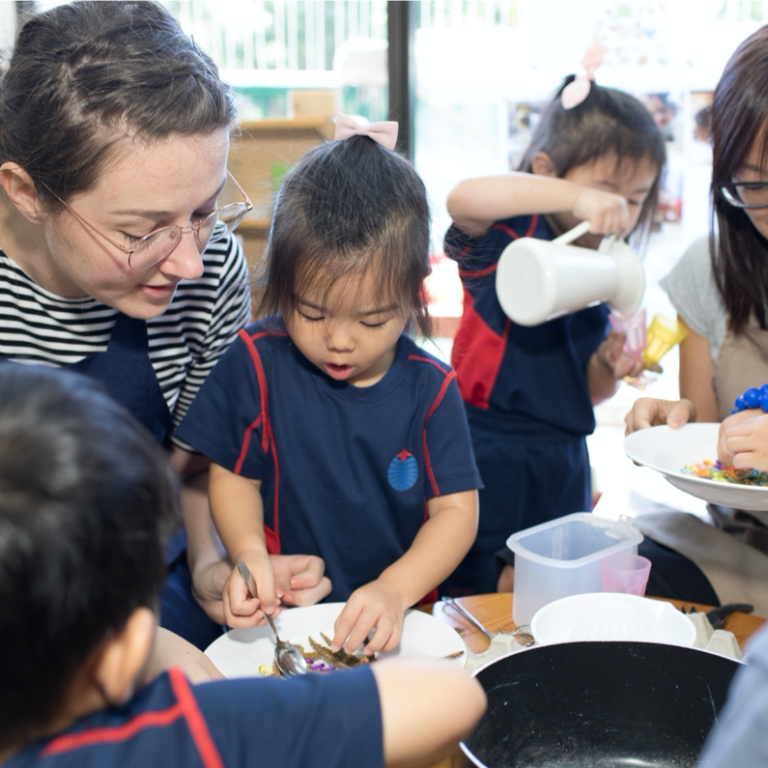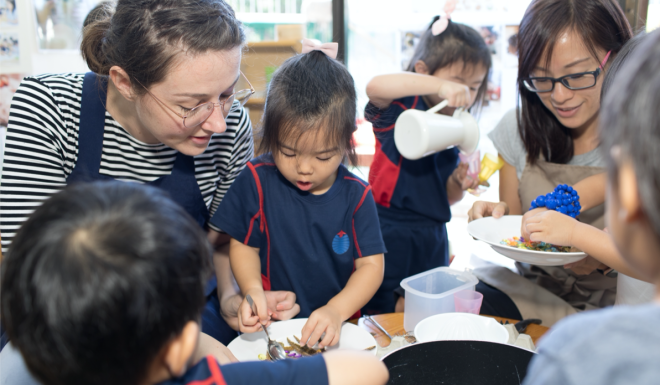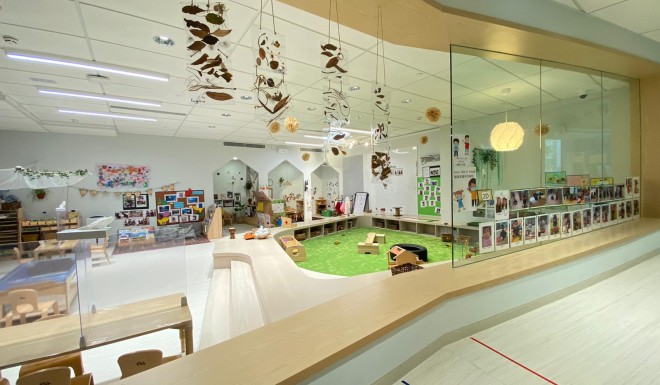
A parent’s guide: what to look for when choosing a kindergarten for your child?
- Leading institutes across continents continue to confirm that the first six years, the Kindergarten years, are a significant time in laying the foundation for lifelong learning and success
- Secure relationships with teachers lead to confident collaborators and communicators
By: Clayton Mullins, Western Co-Principal, Yew Chung International School
Yearly across Hong Kong, thousands of families are faced with the significant task of finding the best kindergarten for their child. The Center on the Developing Child, Harvard University, is a strong advocate for and researcher of early childhood development. Their neuroscience research reveals that a child's brain is 90% developed by the age of three. Further research shows the impact of daily experiences and relationships on shaping a child's brain. Leading institutes across continents continue to confirm that the first six years, the Kindergarten years, are a significant time in laying the foundation for lifelong learning and success.
I have found that parents in Hong Kong intuitively know that the early years are essential and that they place a great deal of their time and energy in seeking out the best for their child. I applaud Hong Kong families for their extraordinarily high and correctly so, regard for Education.

There are so many kindergartens, so where does a parent begin? Events such as the SCMP Kindergartens Festival are excellent opportunities for parents to speak to many schools within walking distance of each other. These are the perfect opportunities to ask schools questions that are close to your heart.
1. What curriculum does the kindergarten use?
If you walk into a classroom and see twenty-five pictures that all look alike, pasted to the wall, this would indicate what we call a teacher-directed curriculum. While children would most probably be learning core skills, they may be missing out on creative reflection and individual application. A child-centred curriculum would have the teachers observing, reflecting and partnering with children in developing the curriculum themes around current interests originating from children. The result is a highly engaging programme. If you ask the teacher what they will be learning for the year, and the teacher replies, "Seasons until October, Food to CNY and Dinosaurs to Easter '', you would know that the class will follow a thematic approach. Teachers decide on the core themes before the school year starts without input into children's current interests. We know that children learn best when they are interested!
2. How does the school partner with parents?
A lot can be said about the quality of a school's programme when enquiring about their communication and collaboration with families. When seeking a kindergarten for your child, I would encourage you to ask how often teachers communicate with families and what they communicate. Do teachers only phone when there is a problem, or are teachers contacting families regularly with photos and stories from the classroom, keeping parents up to date with their child's learning journey? Does the school make use of apps such as Seesaw to keep ongoing and current connections? Do teachers make detailed portfolios on each child, or is a generic observation report only shared?
3. What does the school environment tell you about early childhood values?
Kindergartens that have aligned with best early childhood practices stand out with their well-resourced and stimulating environments. Classroom spaces have a variety of learning areas, and children have ownership of these spaces. These spaces are continually adapting based on children's interests. Even as an adult, you feel a sense of excitement upon entering these spaces, as you can imagine the diverse learning opportunities in which your child will engage.

4. What do teachers say about your child?
Something that is so often overlooked when selecting a kindergarten is the behavioural management approach of the school. As parents, we spend so much time investing in our young children. Are we choosing schools that align with our values, ensuring consistency in the message being received by our children, whether at home or school? Is fear and punishment used to motivate a child, or are teachers professionally trained in using early childhood skills to support children in understanding their emotions, developing problem-solving skills and communicating with those around them?
5. How do children learn both English and Chinese?
Secure relationships with teachers lead to confident collaborators and communicators. A co-teacher model allows children more time with both the Western and Chinese teacher, leading to stronger relationships. When approaching a school, I would ask how much time children have to communicate with each other and their teachers each day? And investigate whether children are developing a robust spoken vocabulary? I would ask how teachers enhance child-led discussions and find out how much time children have to play, explore, and activate their imagination?
Parents are their child's first teacher, and schools have a significant responsibility in partnering with families in educating their young children. While there are many exceptional schools across Hong Kong, not every school will answer questions in ways that you would have hoped. I encourage parents in Hong Kong to seek out the resources of authors such as Janet Lansbury and Susan Stacey, with books in both English and Chinese available in Hong Kong. And I encourage families to reflect on essential questions for their family so that your conversations at school fairs will help you feel confident about the best school for your child.
